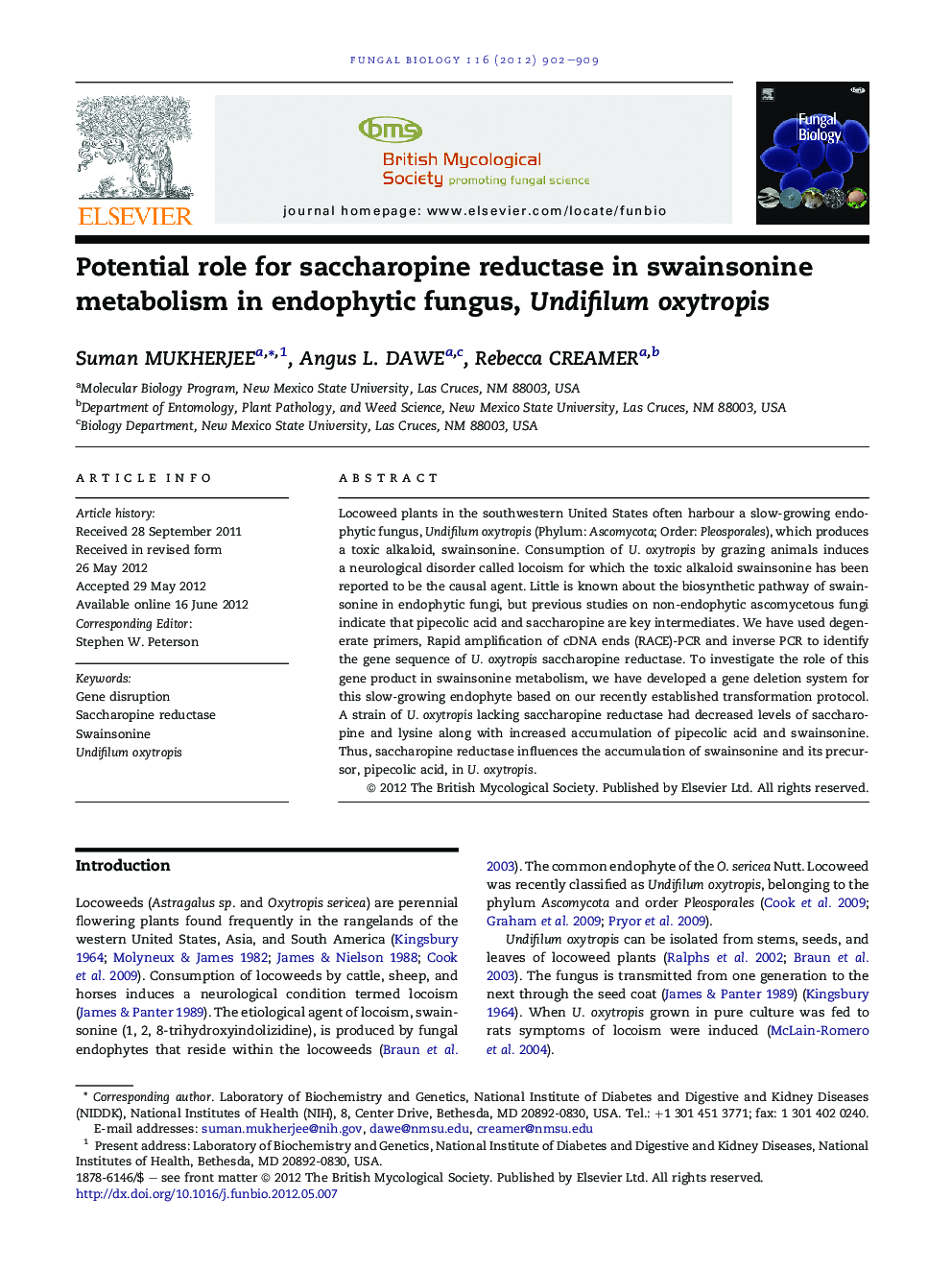| Article ID | Journal | Published Year | Pages | File Type |
|---|---|---|---|---|
| 6287997 | Fungal Biology | 2012 | 8 Pages |
Locoweed plants in the southwestern United States often harbour a slow-growing endophytic fungus, Undifilum oxytropis (Phylum: Ascomycota; Order: Pleosporales), which produces a toxic alkaloid, swainsonine. Consumption of U. oxytropis by grazing animals induces a neurological disorder called locoism for which the toxic alkaloid swainsonine has been reported to be the causal agent. Little is known about the biosynthetic pathway of swainsonine in endophytic fungi, but previous studies on non-endophytic ascomycetous fungi indicate that pipecolic acid and saccharopine are key intermediates. We have used degenerate primers, Rapid amplification of cDNA ends (RACE)-PCR and inverse PCR to identify the gene sequence of U. oxytropis saccharopine reductase. To investigate the role of this gene product in swainsonine metabolism, we have developed a gene deletion system for this slow-growing endophyte based on our recently established transformation protocol. A strain of U. oxytropis lacking saccharopine reductase had decreased levels of saccharopine and lysine along with increased accumulation of pipecolic acid and swainsonine. Thus, saccharopine reductase influences the accumulation of swainsonine and its precursor, pipecolic acid, in U. oxytropis.
⺠We sequenced saccharopine reductase gene on endophytic fungus Undifilum oxytropis. ⺠Gene disruption system for U. oxytropis was established. ⺠Using this system U. oxytropis saccharopine reductase enzyme. ⺠Saccharopine reductase may play a role in swainsonine and lysone metabolism.
